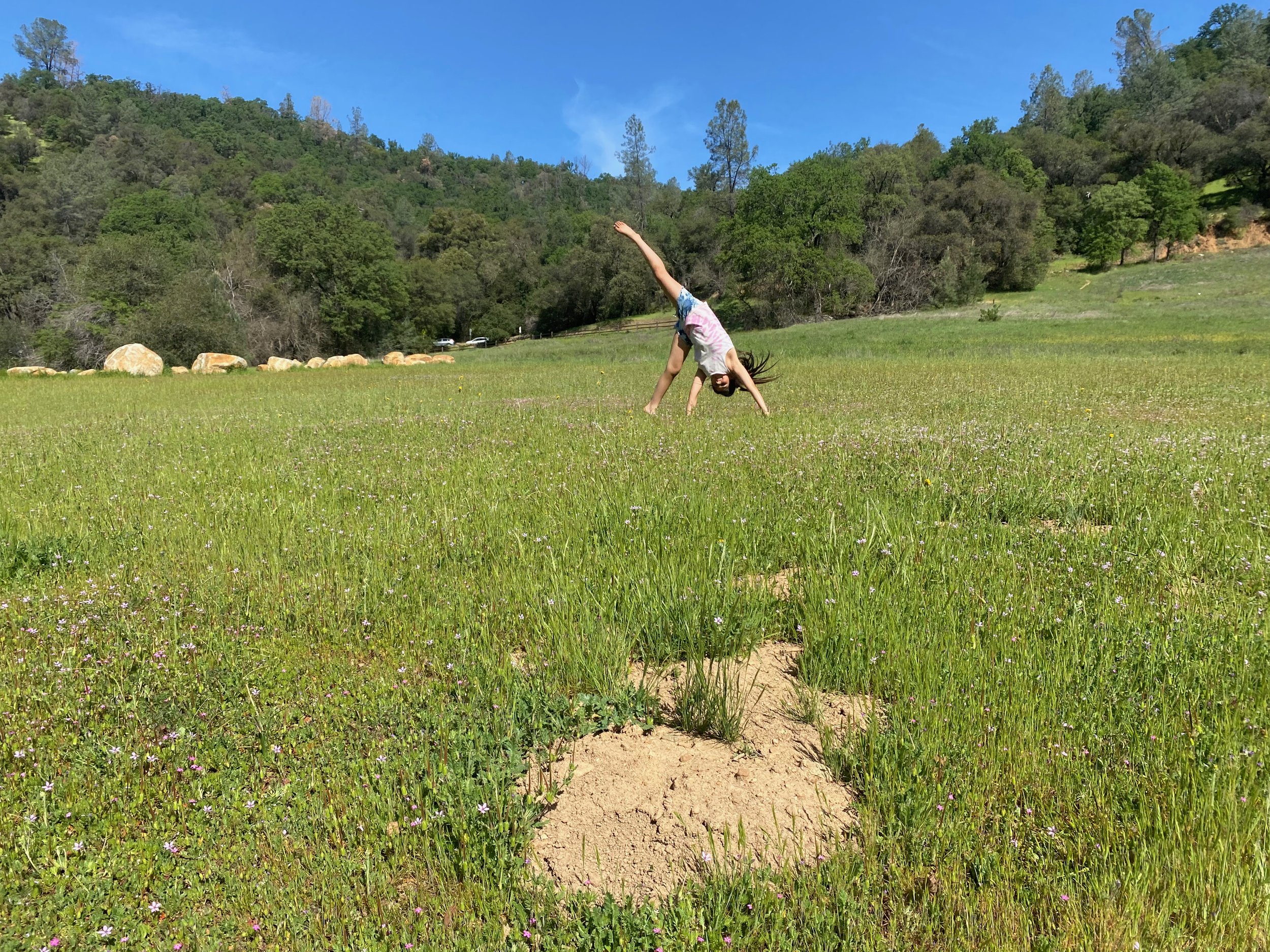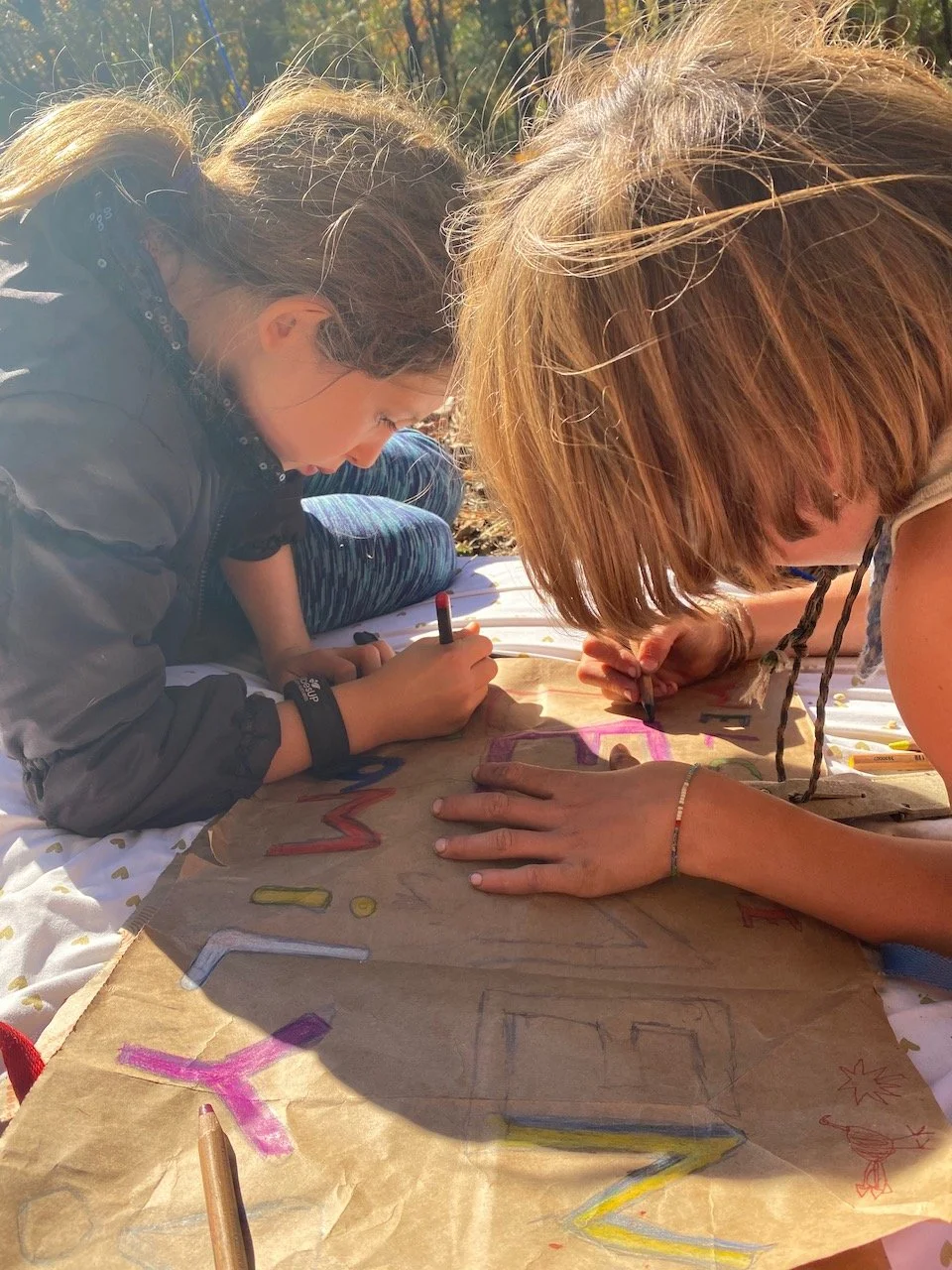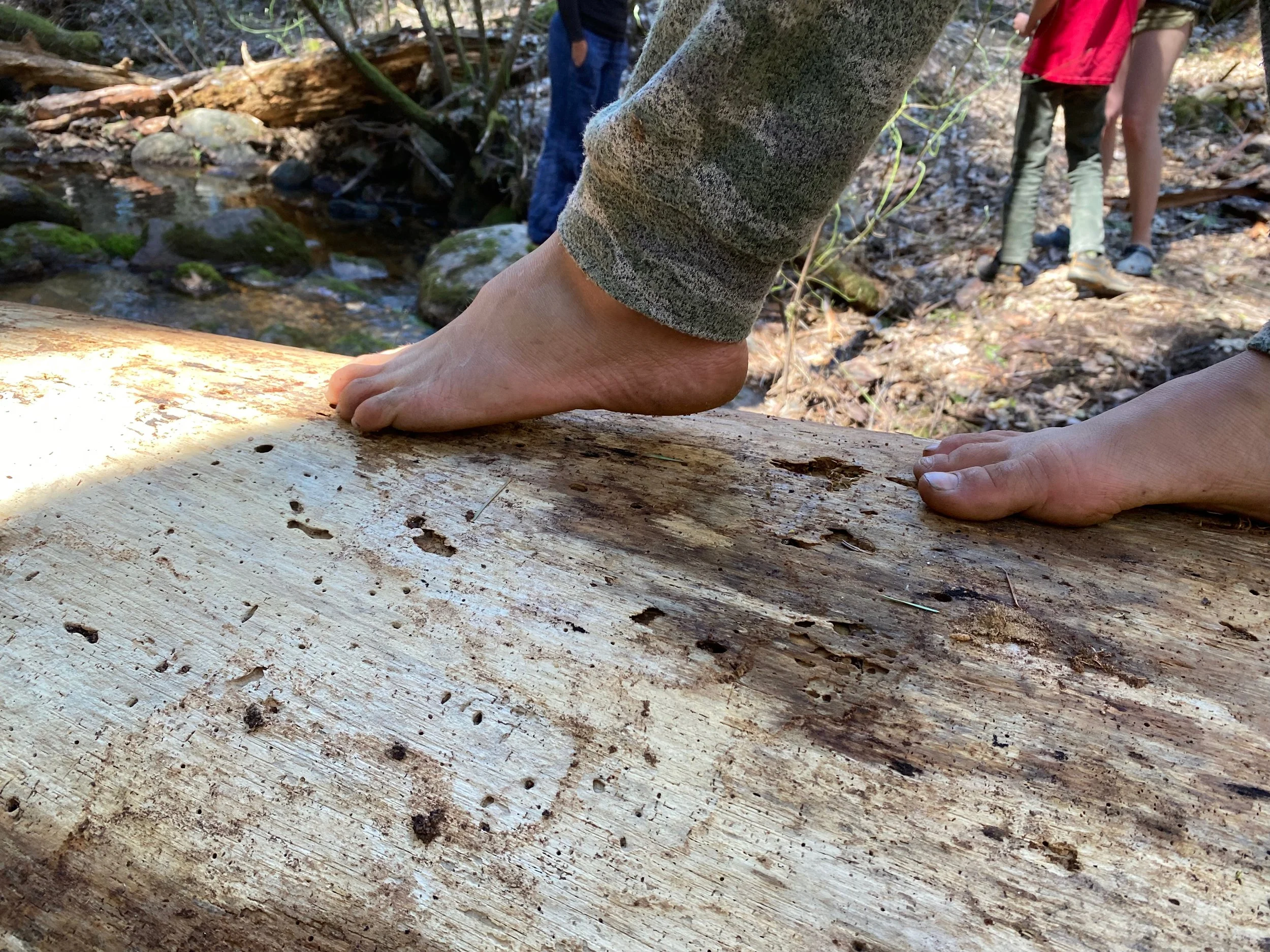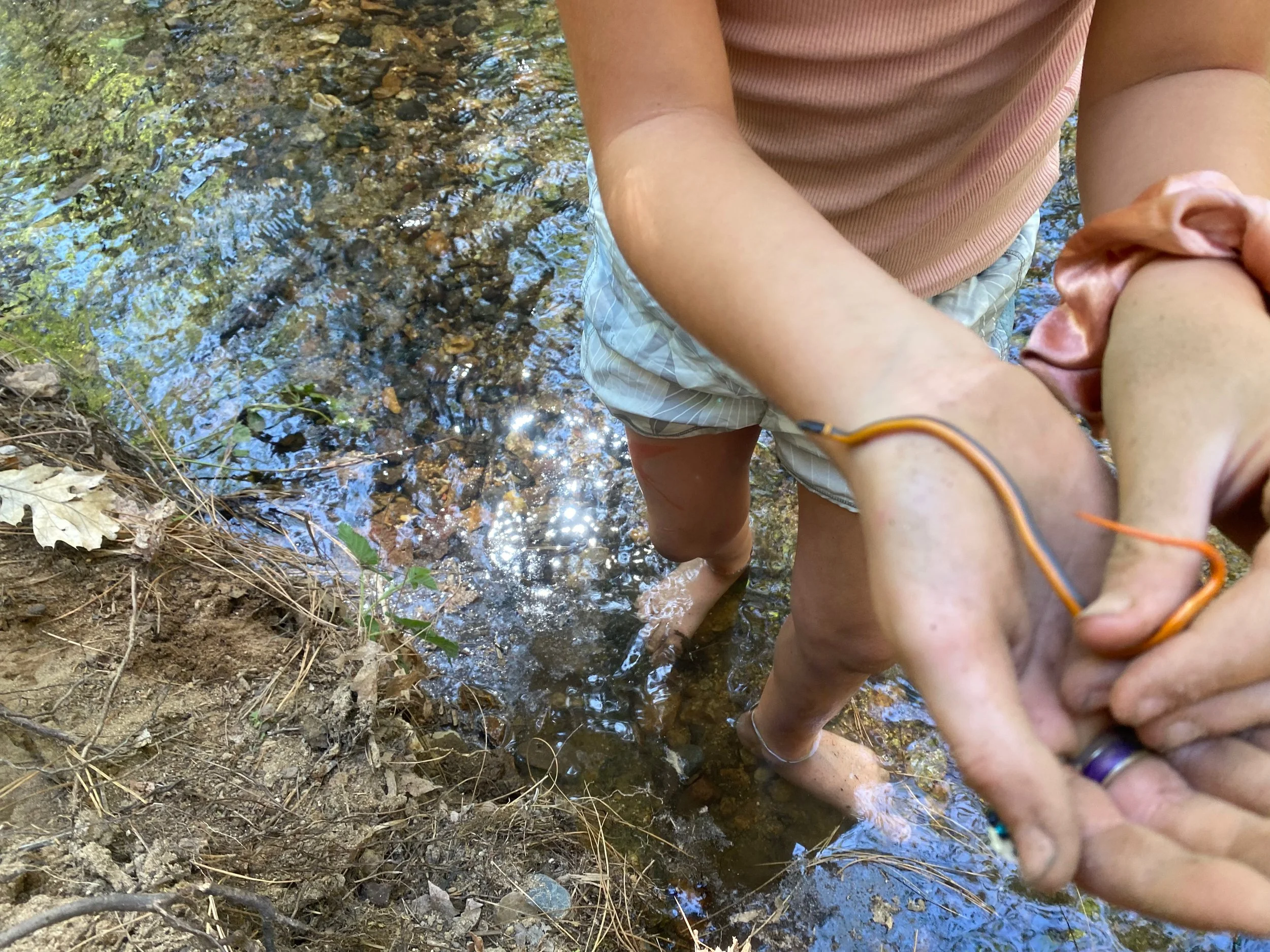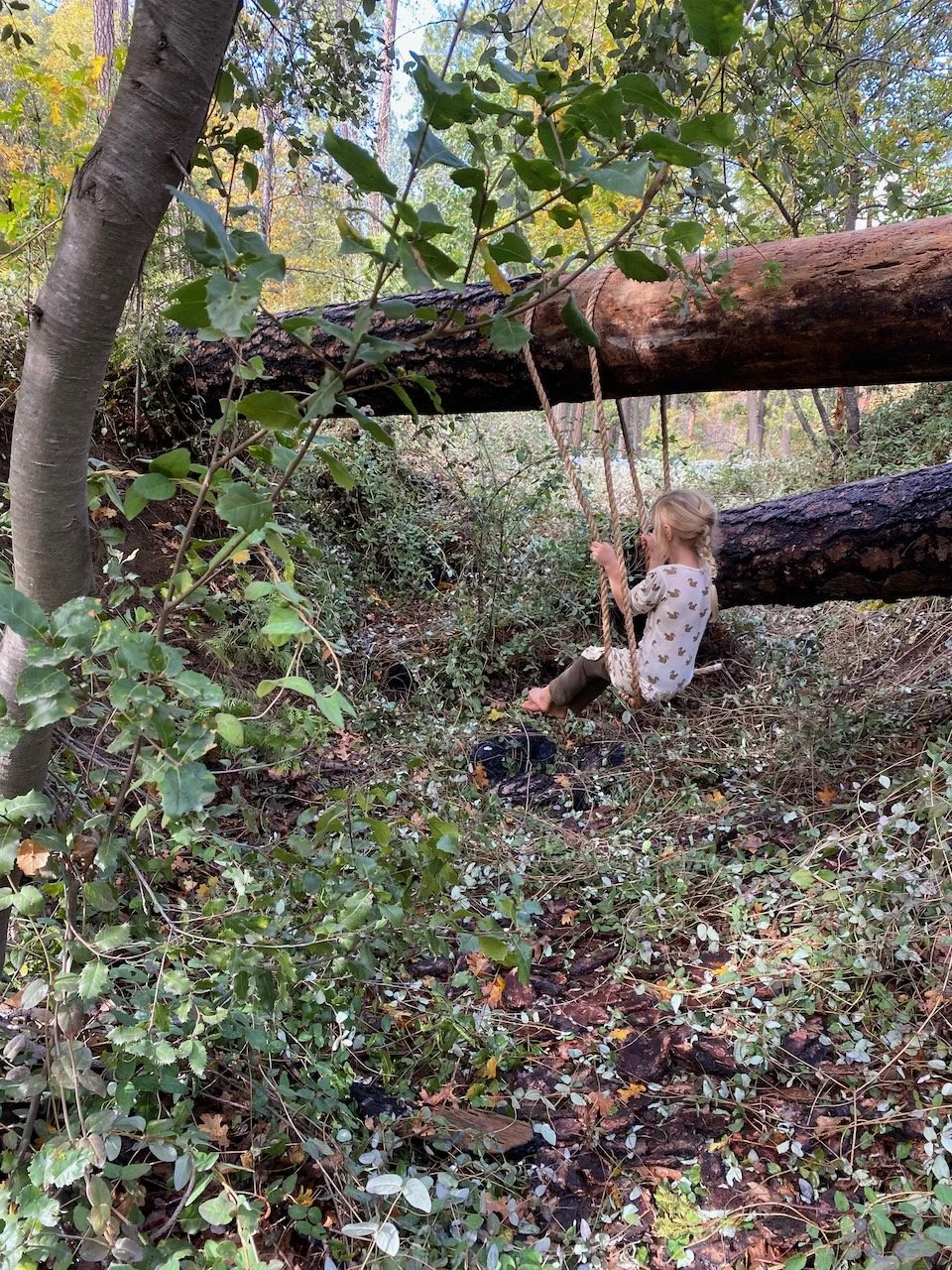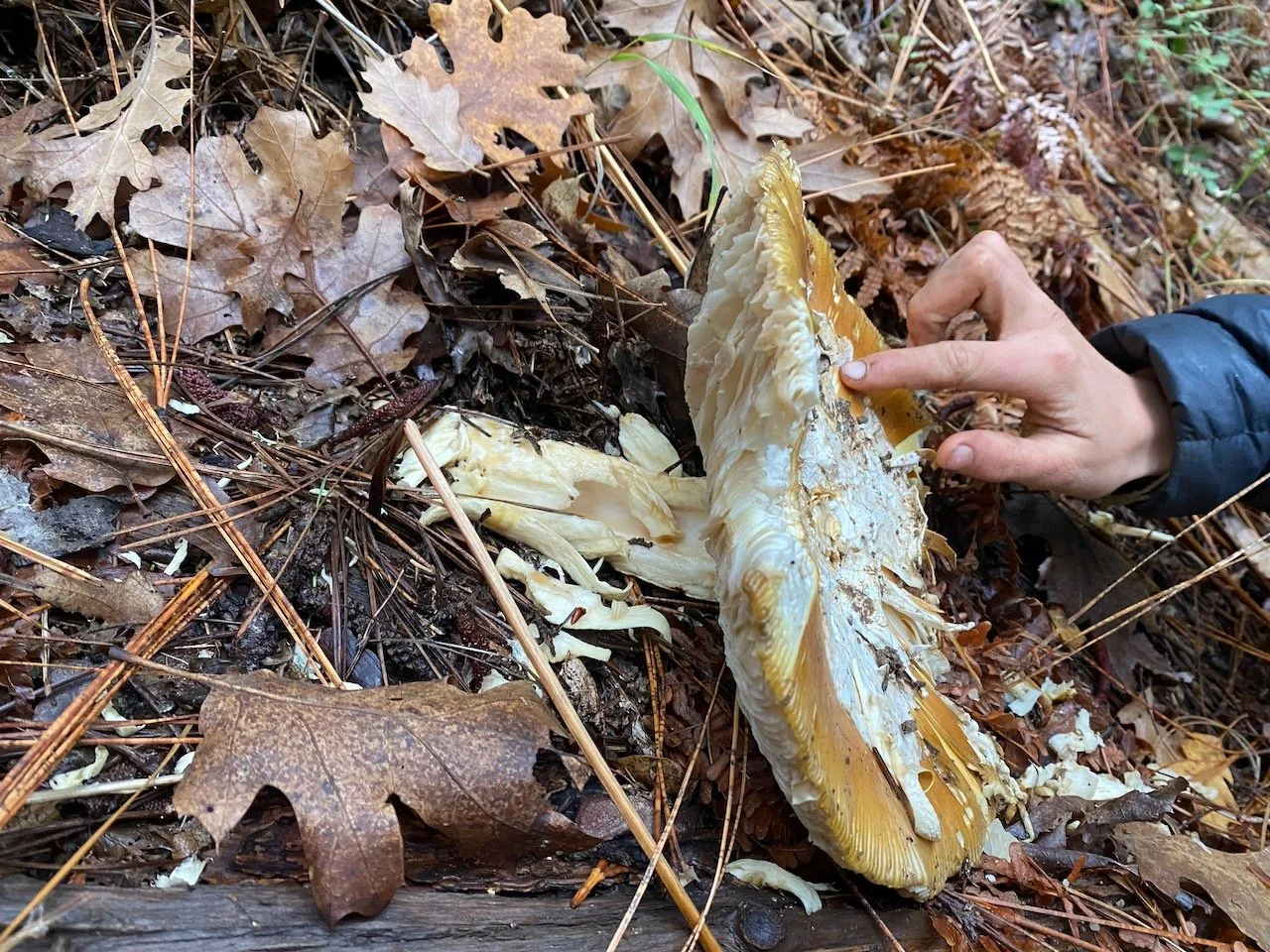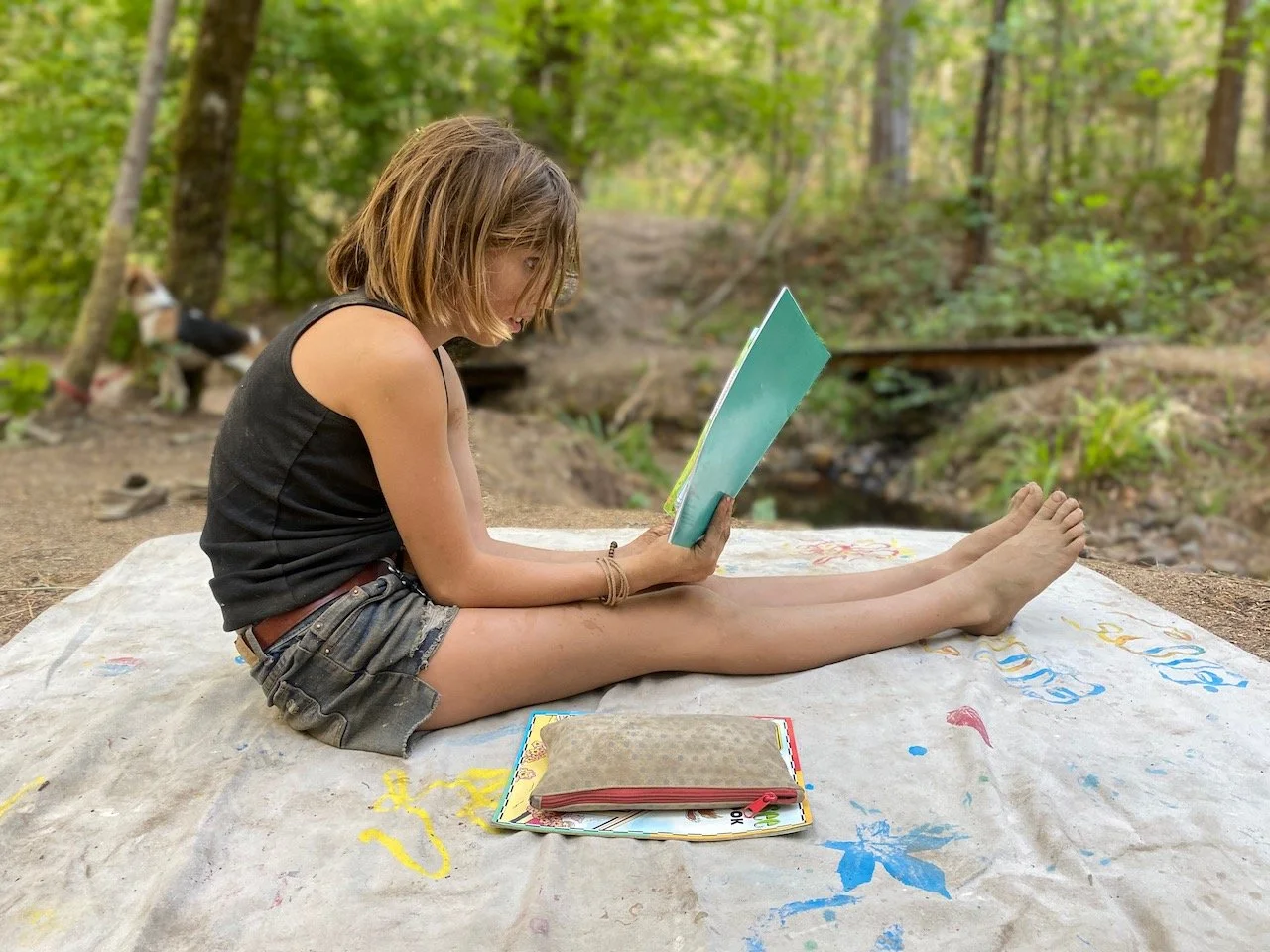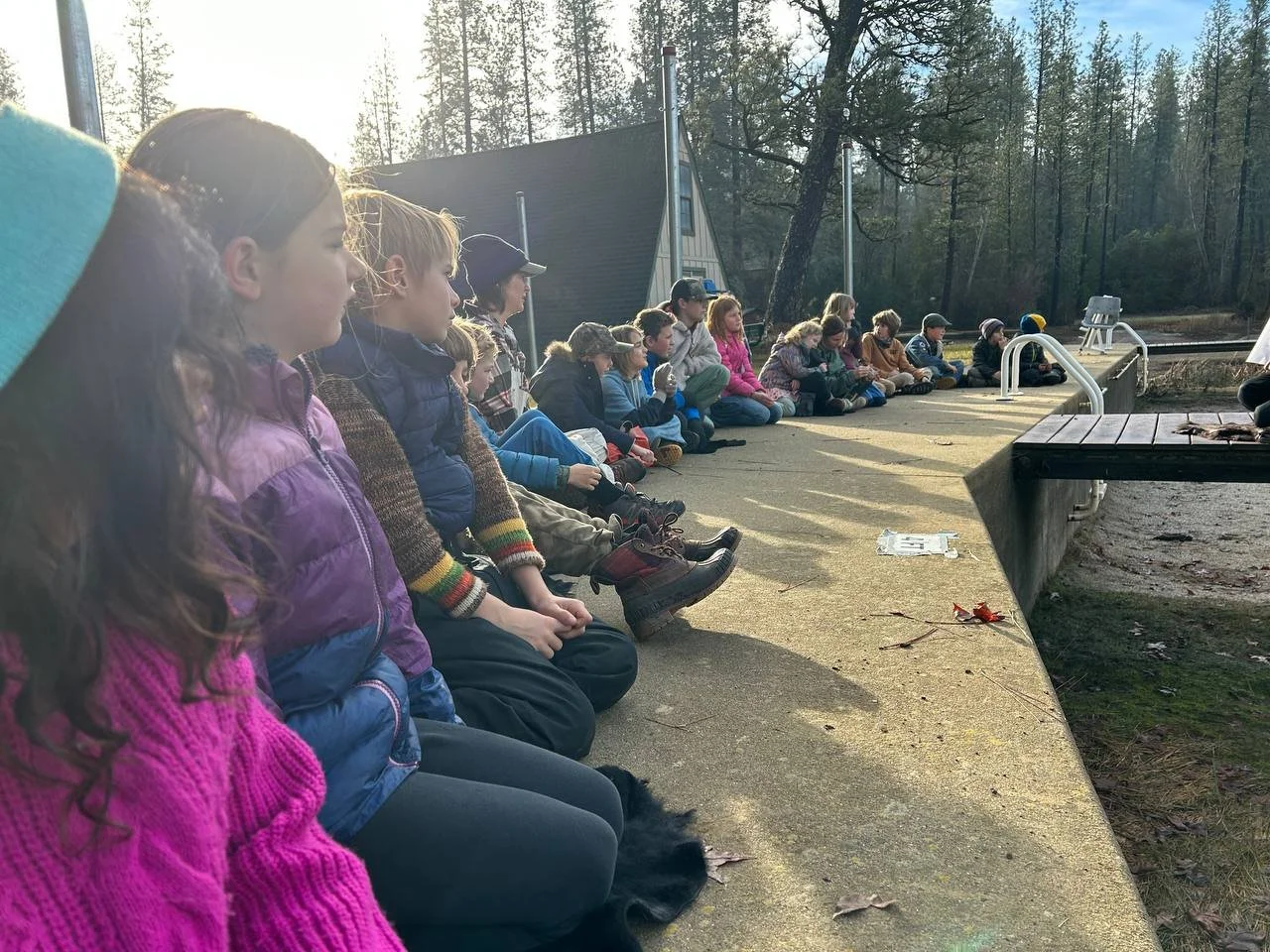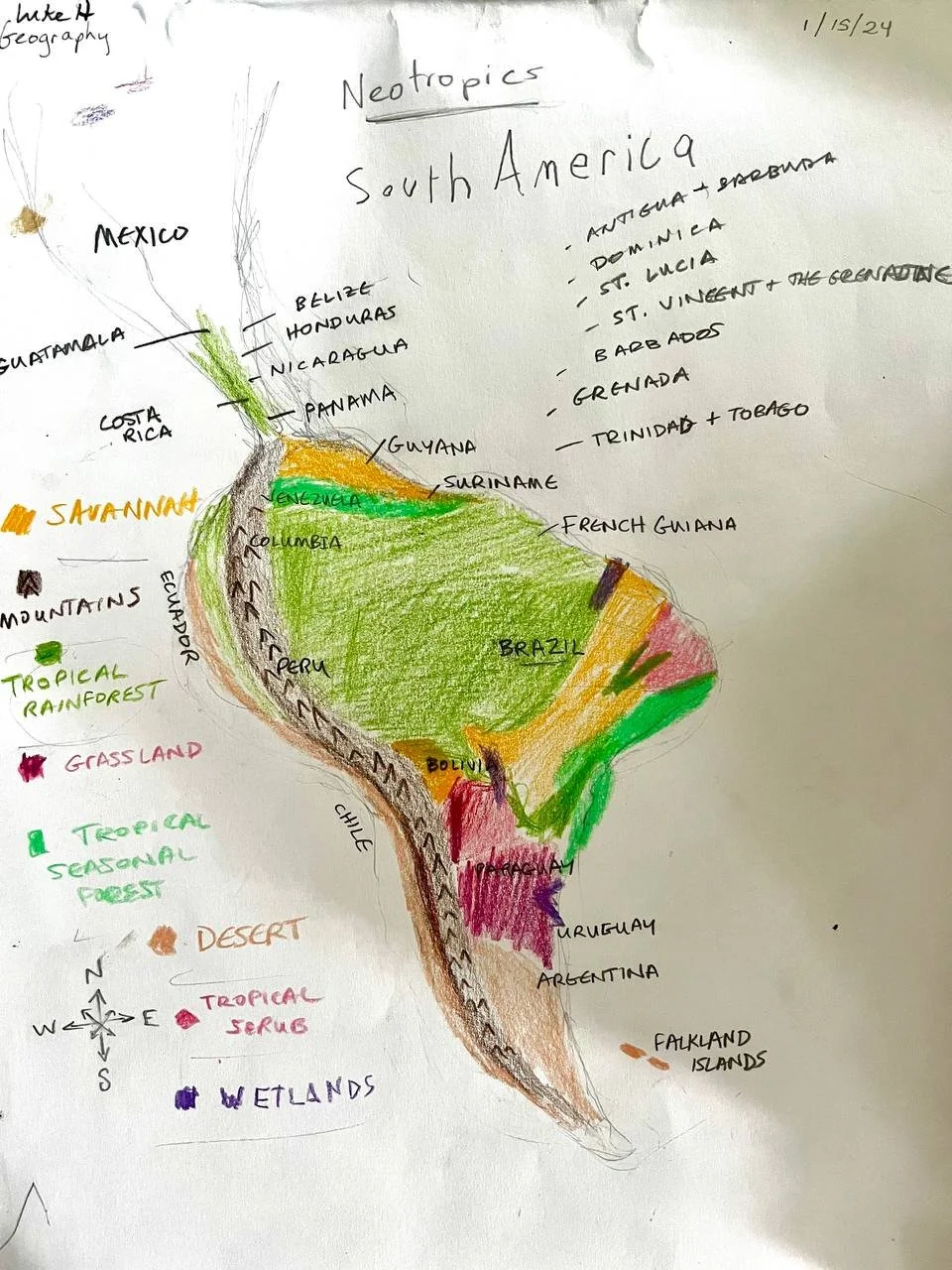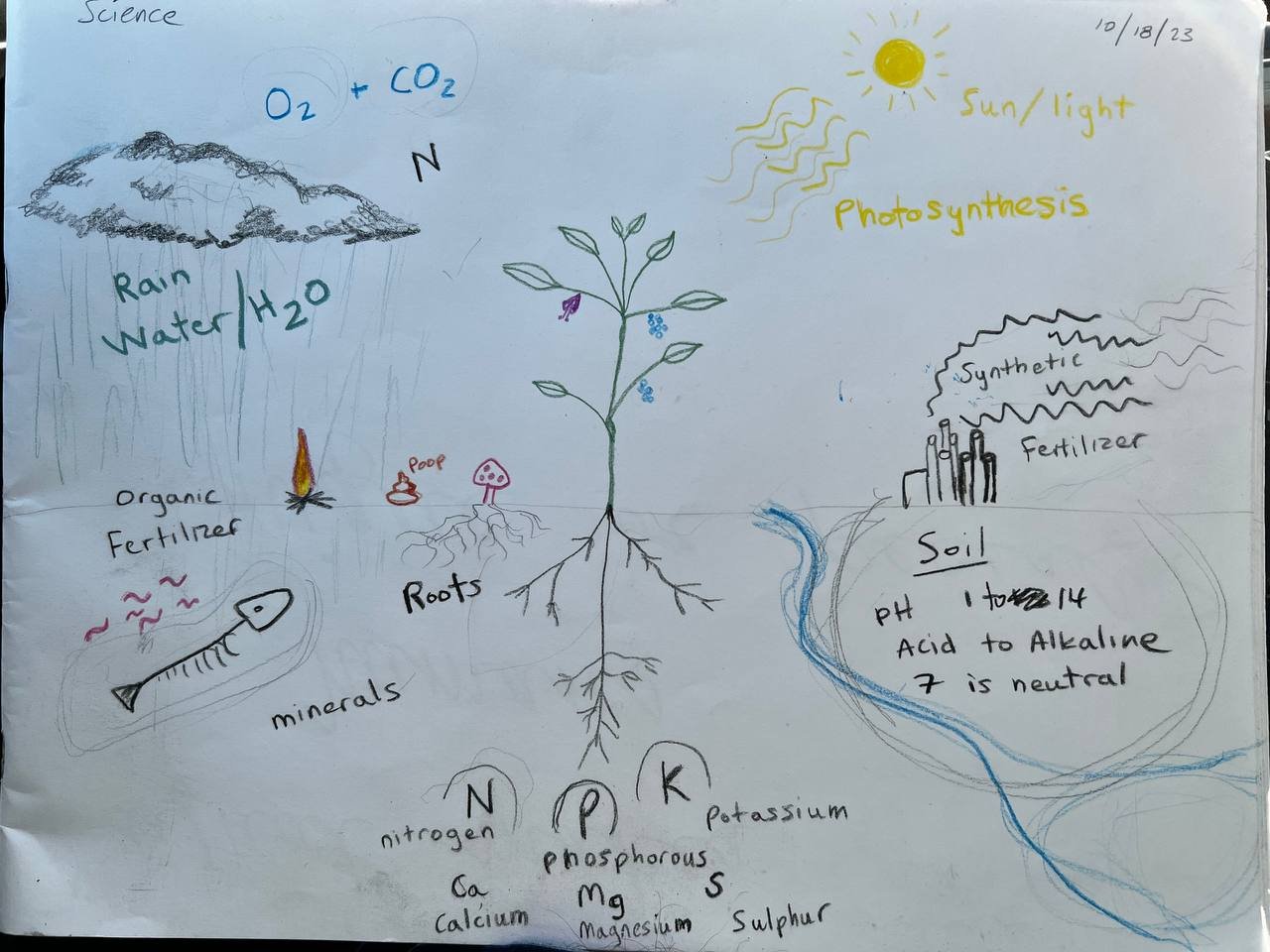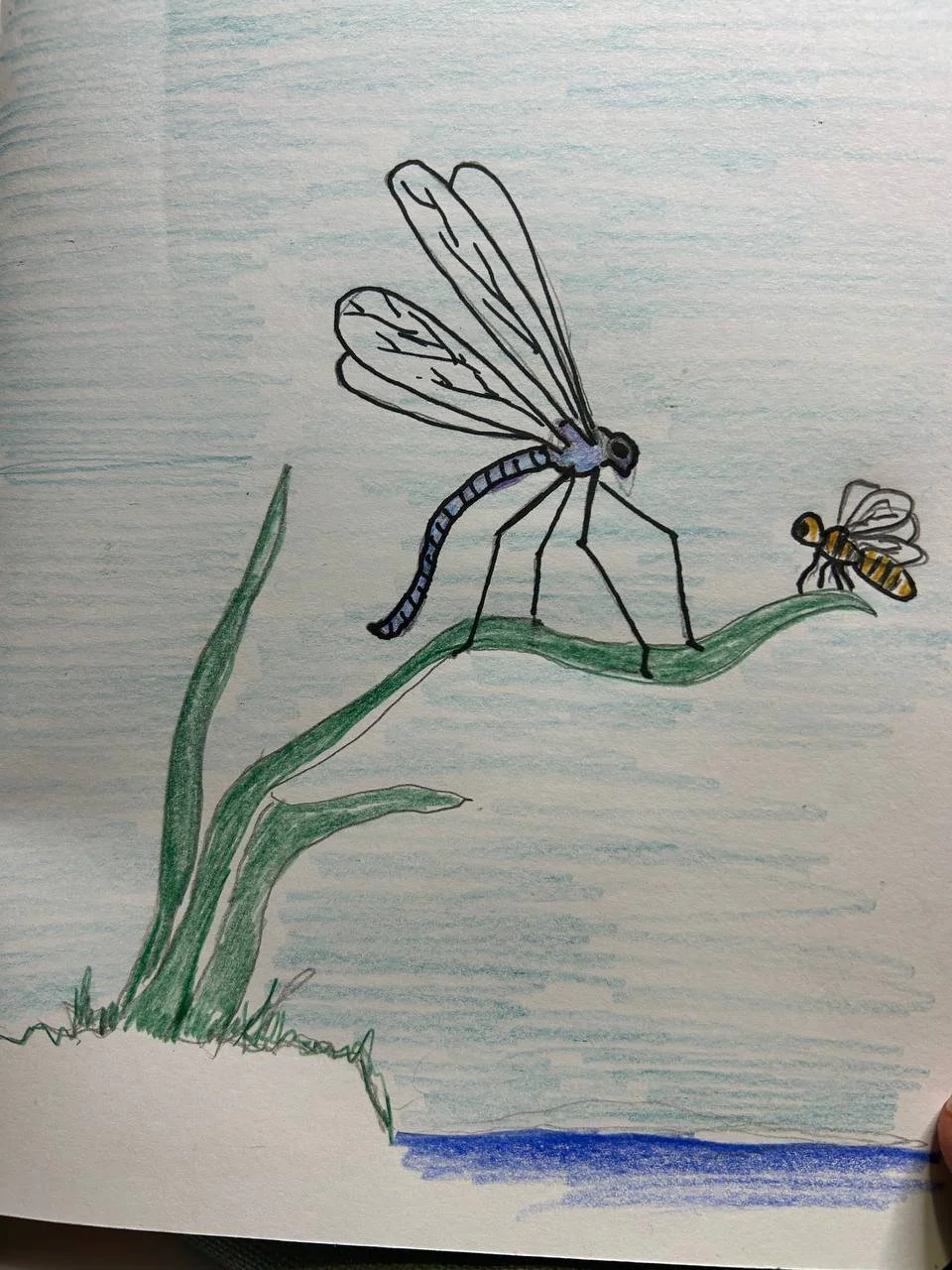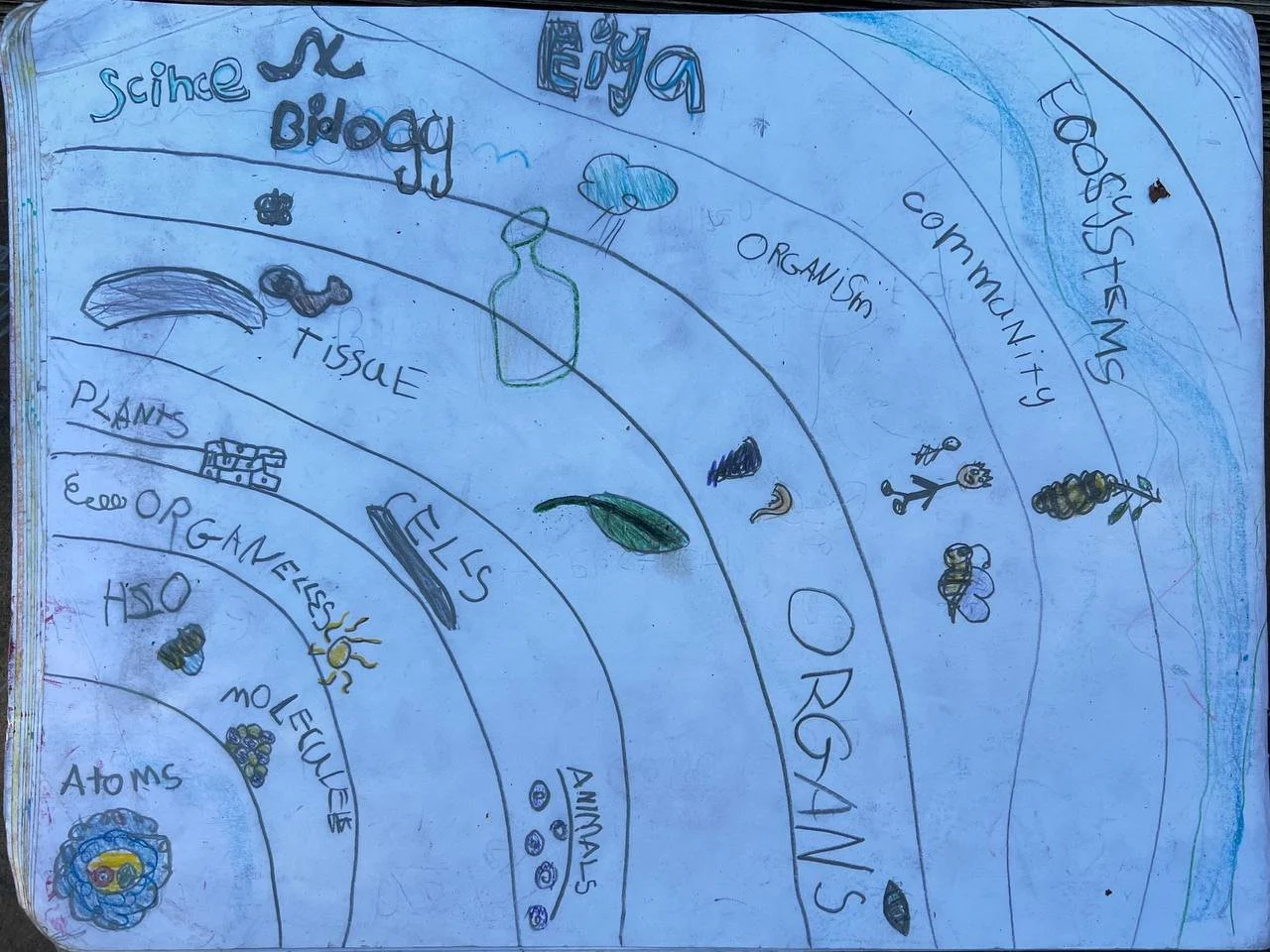Academic Nature Program
Our 2024-2025 Academic Year begins on Monday, September 9, 2024 and ends on June 6, 2025. Classes are offered Monday-Wednesday from 8:30am - 3:30pm.
Program Fees:
3 day per week Academic Program is $6500/year.
2 day per week Specialty Subject Program is $4000-$5000/year.
5 day per week Academic + Specialty Subject Day is $9000/year.
Our 3-step enrollment process includes a getting to know you questionnaire, phone interview and trial day or in-person interview.
Available Trial Days this spring are May 13, 14, 15, 20, 21, 22, 27, 28 & 29. Please contact Dawn to enroll.
At Ohmapi, our students learn through nature while in nature as we weave academics into our nature studies. Students learn math, language arts, science and history/geography everyday in our Waldorf-inspired main lessons. In addition to lessons and equally important, is the time we spend exploring nature, solving riddles, playing games, listening to stories, learning through doing, making observations and doing handwork. Most homeschooling parents choose homeschooling to allow for flexibility in their child’s learning; The Ohmapi Nature Project recognizes and supports that. We provide 3 days of academic focused learning in nature and parents get to round-out their child’s learning the other 2 days per week by pursuing specific interests or enrolling in our 2 day per week Specialty Subject Program.
For the 2024-2025 academic year…
Our nature focus is for the 2024-2025 Academic Year is Fur, Feathers, Scales and Skin. Over the course of 33 in-class weeks, from September to June, we will explore the 10-20 locally found animals, including humans. We will learn about bears, newts, salmon, owls, etc… Through our studies we will seek to understand not only each animal’s behavior, habitat and biology but also its the cultural importance. We will do month-long handwork projects to fully discover each animal’s unique characteristics and beauty.
Core Academics for Grades 1-6
Core academics for grades 1-6 and middle schoolers are woven into the study of nature topics. Our 3 days per week Academic Nature Program is designed to meet basic academic requirements of English, Math, History and Science. During main lessons, the students are divided into 4 groups with 4 instructors ensuring lessons are developmentally appropriate for each child. Our elementary program, for ages 7-10, focuses on developing nature connection, academic skills and autonomy.
Our middle schooler program, for ages 11-14, embraces the developmental changes of the middle schooler with lots of self-directed learning time, as well as time to connect and socialize with peers. Student and mentor work together to identify each student’s individual interests and goals and then work to channel will forces to achieve those goals. Through such work, the middle-schooler becomes empowered, believing "I am capable and can do whatever I set my sights on."
Our lessons are Waldorf Inspired (see below for detail by grade). We do a bit of math, language arts, science and history everyday in our main lessons. Equally important is the time we spend exploring riddles, playing games, listening to stories, learning by doing, making observations and creating handwork.
Below is a link to a sample lesson from a 4-week study of mapping for grades 1-2. During the 4 weeks, we made compasses and learned how to use them, made patterans, learned to read maps, made maps and practiced lost proofing skills.
Click here for a look at a sample lesson of how we weave academics into nature study.
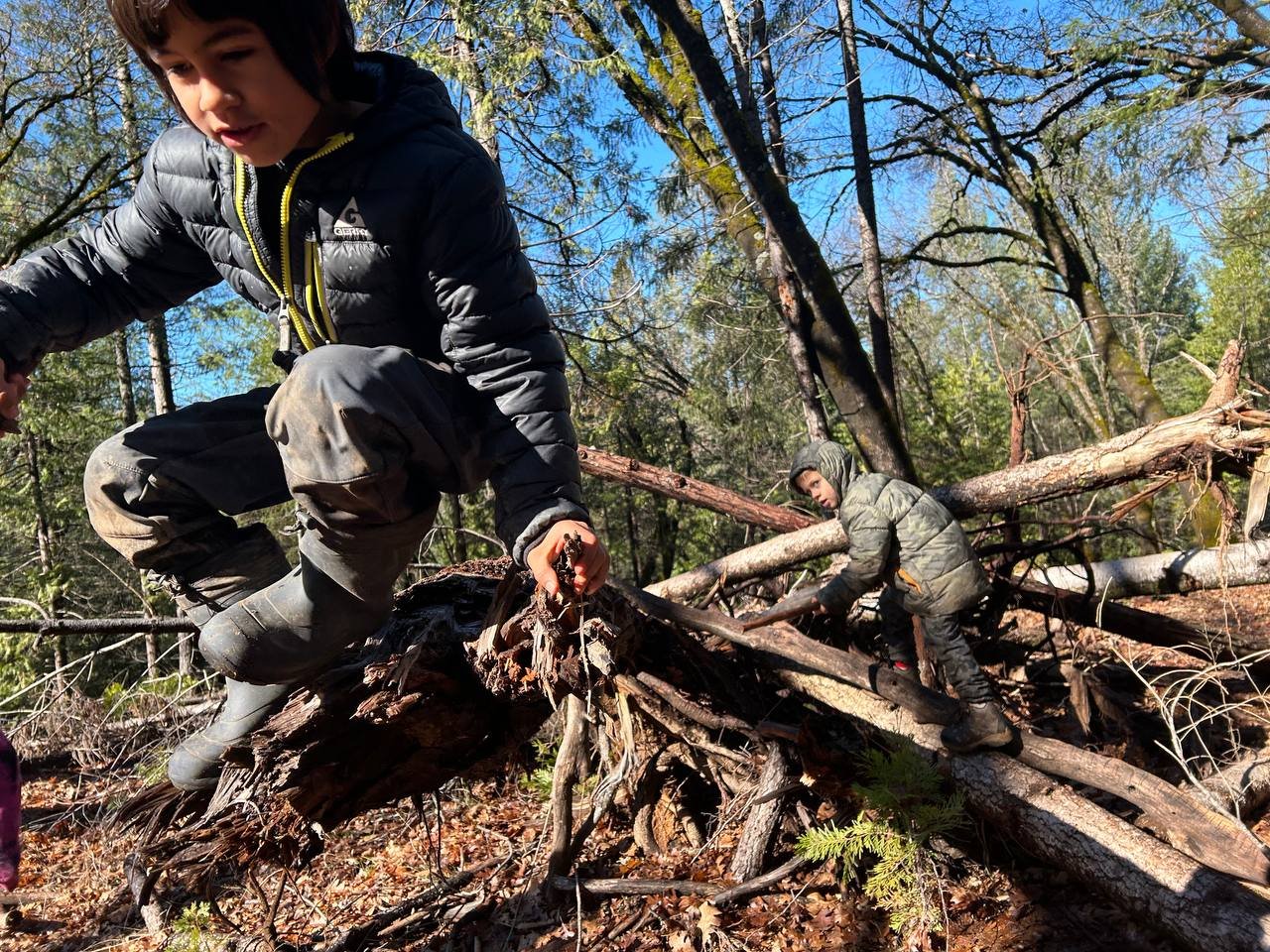
-
Our kindergarten program is play-based. We do not teach academics until the mind and body are ready for it which usually occurs around age 7. Instead our kinders play, explore and learn seasonal songs and movement, seasonal crafts, and stories that speak to the heart. Sign up for our kindergarten program here.
-
Fairy tales; folk tales and nature stories; pictorial and phonetic introduction to letters; form drawing; reading approached through writing; qualities of numbers; introduction to the four processes in arithmetic, and lower multiplication tables.
-
Legends of saints, multicultural folklore, animal fables, reading and writing, elements of grammar, cursive, and arithmetic, including times tables, place value, carrying and borrowing.
-
Nature, history, fairy, folk and legend stories, study of practical life through farming, housing, and clothing; Native American tales, reading, spelling, writing, composition, grammar, punctuation and parts of speech, cursive writing practice, higher multiplication tables, weights, measures and money.
-
Nature, history and legend stories including Native American studies and California history and geography, descriptive writing, composition and letter writing, study of the animal kingdom, and fractions.
Curriculum
-
Nature, history and legend stories including Ancient civilization stories; geography related to vegetation, agriculture and economics, botany, Greek letters, grammar, composition, spelling and reading, arithmetic, including decimals, ratios and proportion, introduction to the Pythagorean Theorem.
-
Nature, history and legend stories, geography, mineralogy, physics (acoustics, magnetism, optics and heat), botany, astronomy, composition, grammar, spelling, biographies, geometric drawing with instruments, and business math.
-
Seventh Grade marks the birth of the intellect with the need to experiment and explore the world. The thirteen to fourteen year old questions authority, and pushes the boundaries of what is known or allowed. Powers of reasoning are being exercised and judgments about the world are formed. Meeting the adolescent's need for critical judgment, we are more exacting, focusing on measurement in math, science and art. Independent projects are a means for the student to go deeper into a subject of interest.
-
Eighth grade is a transformative year. "I am capable and can do whatever I set my sights on." is where thier thoughts lie. Algebra 1 is tackled to the capability of each child. Students write their own short stories. Political and social topics are debated. Chemistry and physics become more measurable and objective.

How and When
The Academic Nature Program is designed to be a 3 day per week program. By meeting several days per week, nature school becomes regular and expected. This constancy enables the children to get beyond the novelty or newness of an outdoor program. The children become accustomed to the rhythm of the sameness of place, instructors and fellow students and are able to easily settle-in to their learning.
Nature schools that meet once per week are wonderful and a great fit for many. At The Ohmapi Nature Project we take that wonderfulness a step or two further, thereby, enhancing, enriching and deepening the learning opportunities.
Location
Our Academic Nature Program classes meet on 100+ acres of private property in Nevada City.


